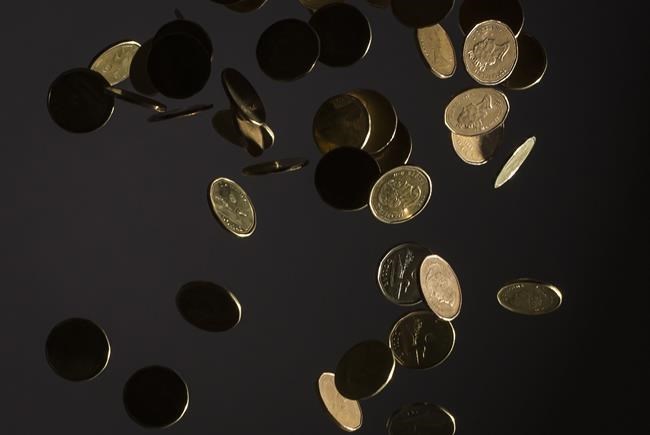sa���ʴ�ý's main stock index lost close to 300 points Thursday, with energy and mining stocks bearing the brunt of the impact as investors continue to worry about the possibility of a recession.
The S&P/TSX composite index closed down 286.92 points at 18,717.12, just one day after Statistics sa���ʴ�ý revealed that sa���ʴ�ý’s annual inflation rate in May was 7.7 per cent, the largest monthly increase in the cost of living since January 1983.
The inflation data was the latest in a series of recent signs that have investors spooked about the chance of rising interest rates triggering a recession, said Allan Small, senior investment adviser at IA Private Wealth.
“There’s obviously the risk that the Bank of sa���ʴ�ý will continue to raise interest rates and stay aggressive," Small said.
“Overall, this (soaring inflation) puts the chance of a recession higher, when you raise interest rates to the point where housing’s affected, where growth in general is affected."
The hardest-hit sector on Thursday was the oil and gas sector, with the S&P/TSX Capped Energy Index losing 6.9 per cent on the day. Some of the stocks on the index, including Baytex Energy Corp., MEG Energy Corp. and Crescent Point Energy Corp. lost more than 10 per cent.
While Canadian oil and gas stocks have performed exceptionally well for much of 2022 due to Russia's invasion of Ukraine and the resulting disruption of global energy supply, Small said some investors are beginning to worry that a broad-based recession — if it happens — will take a bite out of surging demand.
"When you have a recession or a fear of recession, that basically slows down everything. So the demand side of the equation starts to wane," he said. “You don’t have as much of an imbalance, you’re more balanced, if people aren’t going to travel as much and aren’t going to move around as much.”
The Capped Materials Index, which includes some of sa���ʴ�ý's biggest mining companies, also lost ground, declining 5.0 per cent Thursday.
However, south of the border, markets actually posted gains. In New York, the Dow Jones industrial average was up 194.23 points at 30,677.36. The S&P 500 index was up 35.84 points at 3,795.73, while the Nasdaq composite was up 179.11 points at 11,232.19.
Small said the difference between sa���ʴ�ý and the U.S. likely stems from U.S. Federal Reserve chair Jerome Powell's testimony to Congress this week. While Powell restated the Fed's "unconditional" commitment to fighting inflation, he also indicated that the central bank's previously announced interest rate hikes may already be starting to have an impact in the U.S.
"They (the U.S. Federal Reserve) hinted that things are starting to slow, that they’re starting to see a dampening of demand in all sectors," Small said. “I think the U.S. is further ahead in this cycle of trying to slow down the economy, and that’s why their markets are already rising while ours are continuing to fall.”
Small said it's unfortunate that there are no major economic data releases or company earnings expected in the next couple of weeks, because right now markets are trading based on the "fear" of a recession and not on solid, up-to-date information.
He said it's possible that the next set of readings, when they are released, could indicate that inflation in the U.S. has already peaked, with sa���ʴ�ý trailing shortly after. That would be good news for markets, Small said.
"There's kind of a lull period (in the data) right now, and in my eyes, that's unfortunate," Small said. "Because if I’m right, and inflation has topped out, then I think we could see a positive market in the second half of this year.”
The Canadian dollar traded for 77.03 cents US compared with 77.27 cents US on Wednesday.
The August crude contract was down $1.92 at US$104.27 per barrel and the August natural gas contract was down 59 cents at US$6.28 per mmBTU.
The August gold contract was down US$8.60 at US$1,829.80 an ounce and the July copper contract was down 21 cents at US$3.74 a pound.
This report by The Canadian Press was first published June 23, 2022.
Companies in this story: (TSX:GSPTSE, TSX:CADUSD=X)
Amanda Stephenson, The Canadian Press



